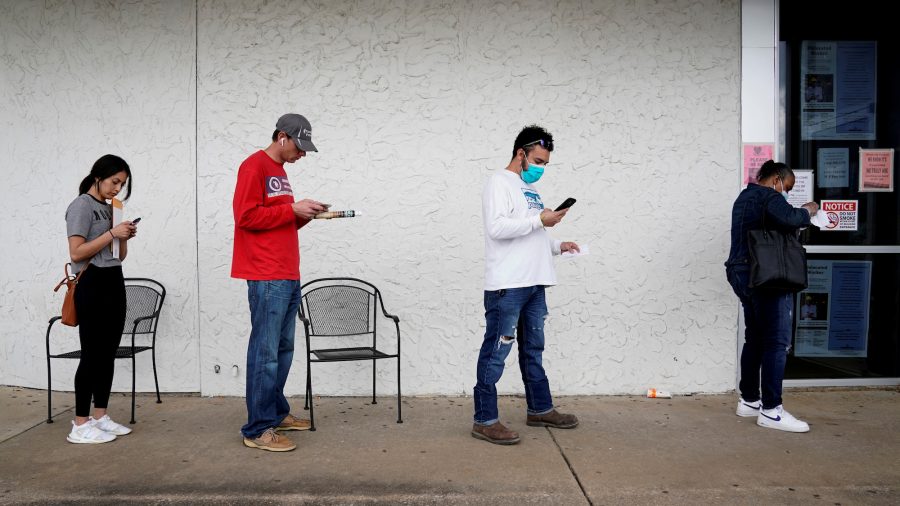Another 1.1 million Americans filed claims for unemployment benefits last week, confounding economists’ predictions and stoking fears that the labor market rebound is stalling.
The Labor Department said on Thursday that the number of initial claims for state unemployment benefits surged to a seasonally adjusted 1.1 million last week, after breaking below one million a week earlier in a hopeful sign that America’s labor market may be on a steady path to recovery. Economists polled by Reuters predicted 925,000 initial jobless claims applications in the week ended Aug. 15, with Thursday’s figures dashing those hopeful forecasts.
Figures for the week before, which saw 971,000 initial claims filed, were the first time in over 20 weeks that claims dropped below one million after peaking at 6.97 million in mid-March.
“Today’s rise in initial jobless will disappoint the market, especially following last week’s promising data,” said Richard Flynn, UK managing director at stockbroker Charles Schwab, in remarks to the BBC.
“While hard-hit industries brought workers back in July, the level of weakness remains unprecedented, and the impact of virus-related rolling shutdowns could continue to reverse some of that improvement,” he added.

U.S. stock markets opened lower on Thursday after the weekly jobless claims surge. At opening bell, the Dow Jones Industrial Average fell 70.20 points, or 0.25 percent, to 27,622.68, the S&P 500 opened lower by 14.37 points, or 0.43 percent, at 3,360.48, while the Nasdaq Composite dropped 50.06 points, or 0.45 percent, to 11,096.40.
Continued jobless claims, which reflect people who have filed regular claims for at least two weeks in a row, fell by 636,000 from the prior week but remain high at 14.8 million.
“The COVID-19 virus continues to impact the number of initial claims and insured unemployment,” the Labor Department said in its release, which also showed that the total number of people claiming unemployment benefits in all programs for the week ending Aug. 1 was 28.059 million. While this is a decrease of 197,601 from the previous week, this is a historically elevated number as in the comparable week in 2019, there were 1.7 million people claiming benefits in all programs.
The Labor Department’s jobless numbers lend weight to the Federal Reserve’s view of a difficult road to economic recovery. The minutes from a Fed policy meeting in July, released Wednesday, show officials warning of “extremely elevated” levels of uncertainty around the economic outlook and saying they expect that the pandemic will continue to exact a heavy toll on America’s economy.
The Fed officials at the meeting “noted that the path of the economy would depend significantly on the course of the virus and that the ongoing public health crisis would weigh heavily on economic activity, employment, and inflation in the near term and posed considerable risks to the economic outlook over the medium term,” the document shows.
Besides the virus, risks to America’s fledgling economic recovery include business uncertainty about the sustainability of the recent surge in consumer spending compounded by a possible pullback in stimulus. Congress has, since March, approved around $3.6 trillion in new spending to counteract the pandemic blow to the economy but talks have stalled on further measures, prompting President Donald Trump to take executive action to extend pandemic unemployment benefits and payroll tax deferral to provide relief to American families.
According to the Labor Department, the largest increases in initial jobless claims for the week ended Aug. 8 were in Nevada (+4,028), Puerto Rico (+3,601), Kansas (+2,248), Hawaii (+247), and South Dakota (+198), the Labor Department figures showed. The largest decreases were in New York (-21,366), California (-19,534), Florida (-16,702), Georgia (-11,596), and Virginia (-10,653).
From The Epoch Times


